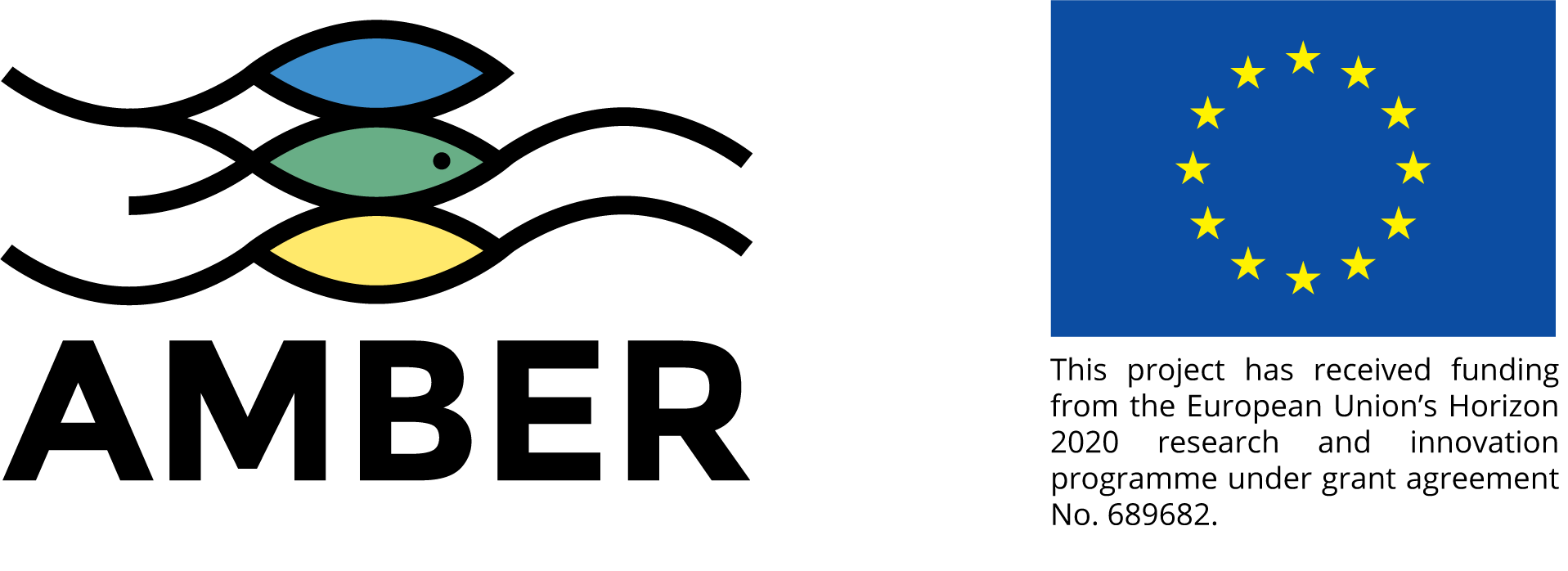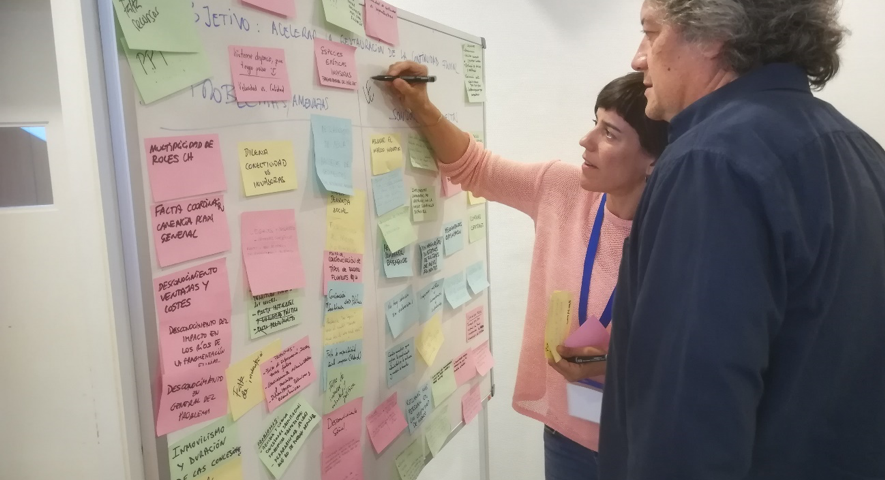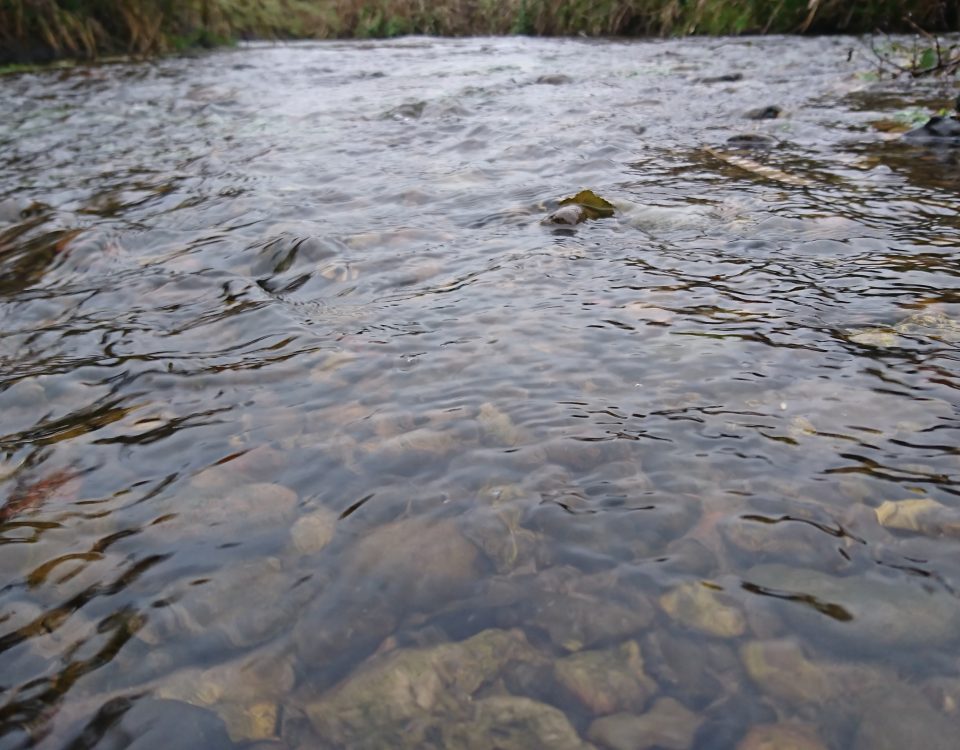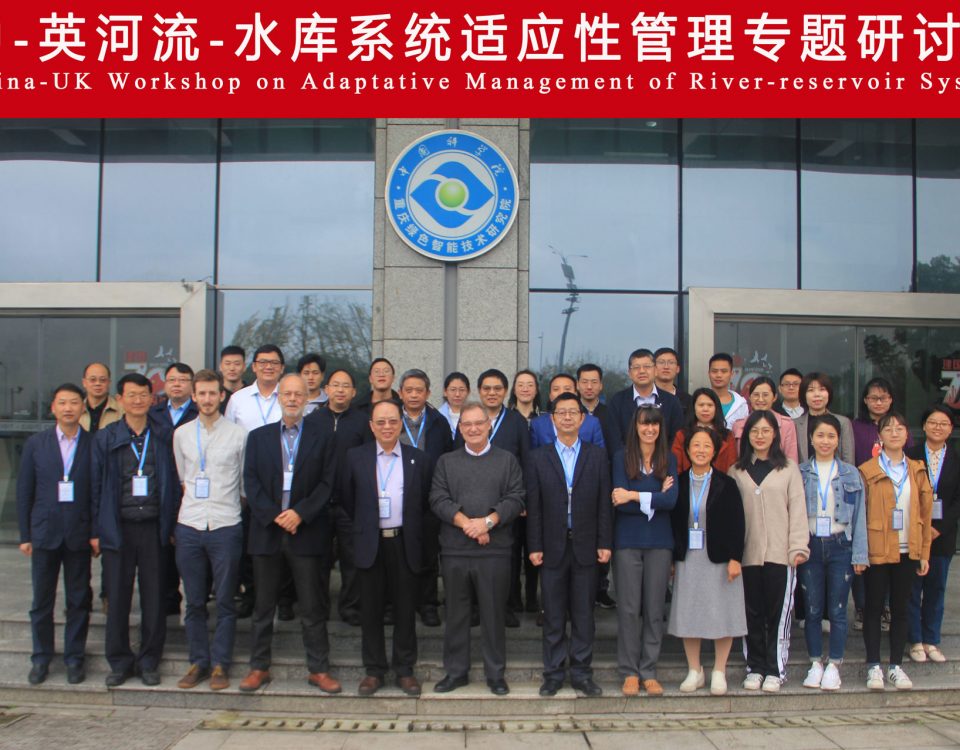Workshop: The Challenge of restoring river continuity: lessons learned and advances made in the EU context (AMBER Project)

First AMBER results as call for European action
June 11, 2019
Professor Zhe Li and Dr Lunhui Lu from China visit Swansea University as guests of AMBER
July 9, 2019Workshop: The Challenge of restoring river continuity: lessons learned and advances made in the EU context (AMBER Project)
Convenors
Carlos Garcia de Leaniz (AMBER Coordinator, Swansea University)
Rosa Olivo del Amo (World Fish Migration Foundation)
Cesar Rodriguez (AEMS-Ríos con Vida)
Duration
2 hrs
Delegates
36 people
Objectives
Rivers rank among some of the most endangered ecosystems in the world. One of the main problems is the loss of longitudinal connectivity caused by dams and other barriers. However dams are used for flood control, and provide water for drinking, irrigation, transport and leisure. In addition, the hydropower generated by dams is essential for meeting the 20% target of renewable energies set by the EC for 2020. Trade-offs and compromises in the use of dams are thus inevitable.
The first challenge faced by water managers, researchers and water providers is to assess the extent of fragmentation caused by dams and other berriers, and the opportunities for restoration. Preliminary studies indicate that current barrier inventories grossly underestimate the loss of connectivity as they typically only register less than 3% of all stream barriers. But which barriers should be mitigated first? How can we maximise their economic and social impacts while reducing their impacts?
Using the AMBER Project as a guide, the objective of this workshop is to identify the main challenges in the restoration of stream connectivity, and to discuss strategies for accelerating the pace and effectiveness of restoration programmes from an adaptive management perspective. It is hoped that this will serve to exchange knowledge and strengthen similar initiatives across Europe in order to make the best possible use of the available resources.
1. Carlos García de Leániz. AMBER Project, Swansea University
2. Carlos Marcos. Confederación Hidrográfica del Duero.
3. Ginés Toral. Confederación Hidrográfica del Segura.
4. Cesar Rodríguez. AEMS-Rios Con Vida.
5. Javier Sanz Ronda. Fithydro Project.
6. Rosa Olivo del Amo. Dam Removal Europe.
7. Gustavo González. CIREF/Icthios Gestión Ambiental S.L.
Objective of the Focus group session: How can we accelerate the restoration of connectivity?
MAIN PROBLEMS & CHALLENGES
1. Lack or awareness at multiple levels
- Political
- Social
2. Wider impacts of fragmentation remain poorly known
- Lack information/studies
-Lack of data on cost-benefit analysis
- Little monitoring/assessment
3. Little coordination between and within public bodies à there is no national o supranational plan for restoring connectivity, no global strategy
4. Dilemmas and trade-offs: connectivity vs invasive species ; maintain connected reaches vs restoring fragmented ones
5. Lack of revision of old, water concessions
POTENTIAL SOLUTION & PROPOSALS
1. Better tools
-Decision Support Tools for barrier prioritization, optimization, and cost-benefit
-Practical Guidelines and Codes of Best Practices in restoration of connectivity
-Fish-friendly hydropower solutions with support from all stakeholders
2. Legal framework/Governance
-Revision of legal framework
-Better integration with Water Act, explicit recognition of connectivity in EU Directives (WFD)
-Simplify the revision and termination of old or abandoned concessions
3. More efficient education, dissemination at all levels
4. Specific Proposals
-Explicit valuation of Ecosystem Services impacted by fragmentation and benefited by improved connectivity
-More staff and resources needed to mitigate for loss of fragmentation
-Need to have specific National/EU targets for connectivity
-Maintain sediment connectivity (not just water or taxa)

Presentation by Carlos Garcia de Leaniz on the AMBER Project

Presentation by Rosa Olivo (WFMF) on Dam Removal Europe

Presentation by Javier Sanz Ronda on the FitHydro Project

Round discussions during the focus group

Rosa Olivo and Cesar Rodriguez summarising the results of the focus group

Setting the objectives for the focus group

Round discussions during the focus group

Rosa Olivo summarising the results of the focus group

Round discussions during the focus group

Rosa Olivo presenting the results of the AMBER workshop to the Conference delegates




